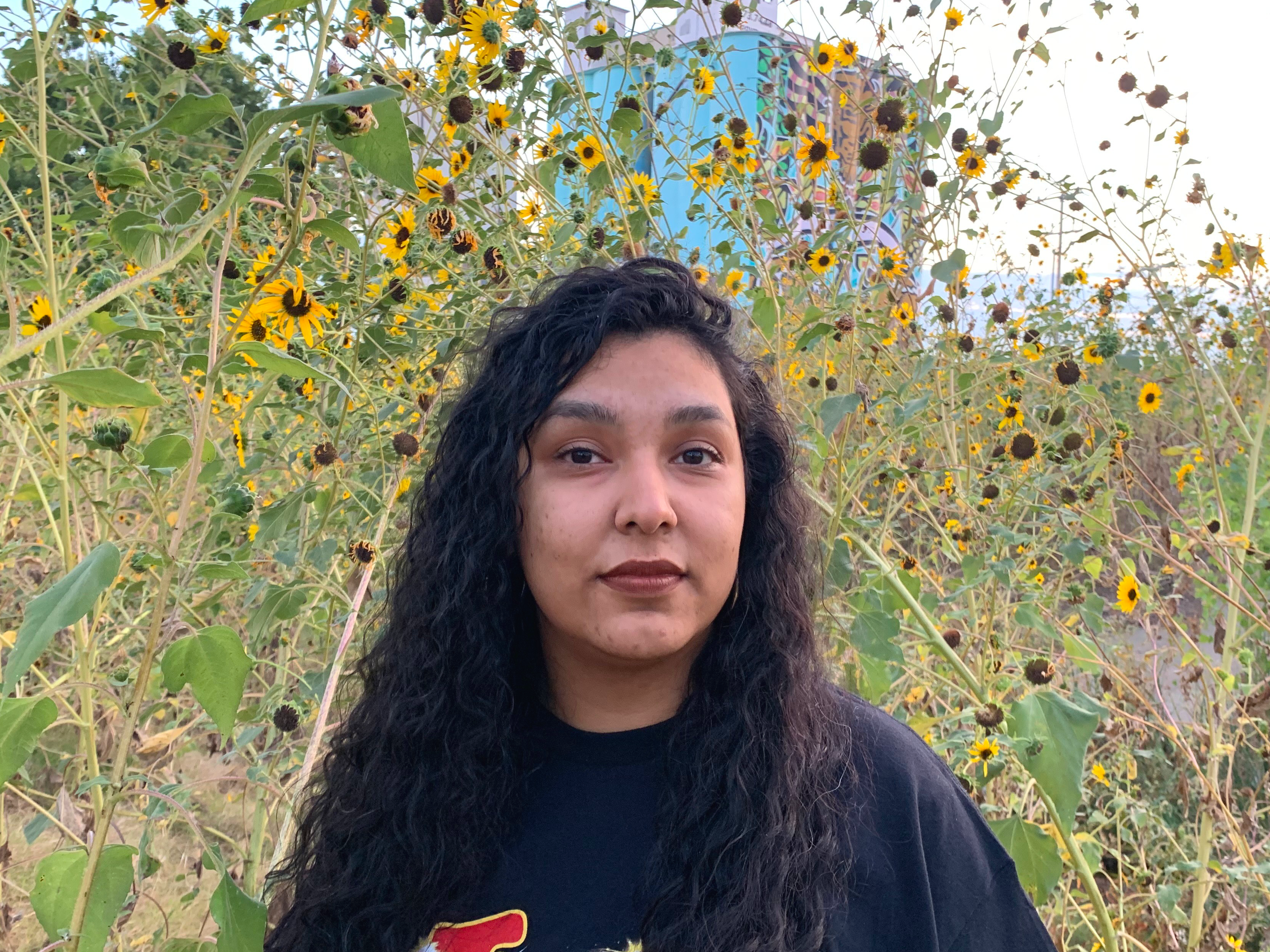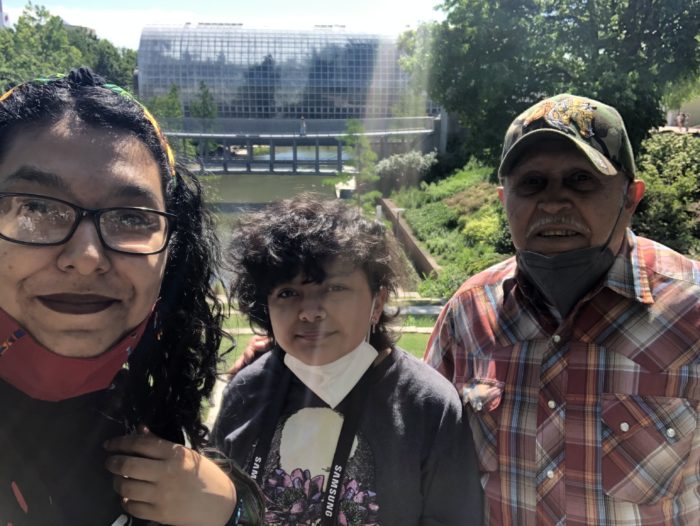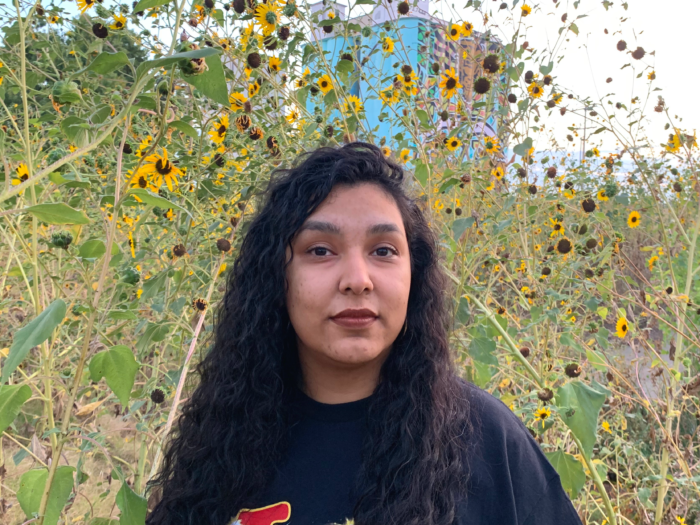
Lessons from My Abuelito: Listen Deeply to El Mar for Life’s Answers

Jessica, her sibling, and her abuelito. Photo credit: Jessica Vazquez
Written by Jessica Itzayana Vazquez Mesta, Azul
Editor’s note: Jessica Itzayana Vazquez Mesta (she/ella) is the Digital Strategist at Azul, a grassroots organization working with Latinxs to protect the ocean and coasts. As a digital organizer, she uses digital tools to amplify the work on the ground from direct actions in the halls of Congress to teacher walkouts at the state legislature. She is featured on the National Marine Sanctuary Foundation’s blog in honor of Hispanic and Latinx Heritage Month.
Mi abuelito Epifanio talks about the ocean often. He describes its vastness and mysteries with awe and respect. He reminds me that life on earth would not be possible without the ocean and all it provides for us.
More often, however, he speaks with sadness and anger about how we mistreat our ocean – polluting it with plastic, overfishing it, and harming it by fossil fuel extraction. I know he worries about the consequences of these actions for our grandchildren and our future generations, as do I. But even with all he has witnessed in his lifetime — he carries hope, because he knows we have answers to these ocean injustices.
In many Latinx homes, conservation is just our way. Conservation is ingrained in our culture; it’s the way entire ranchos come together to share resources during the holidays (las fiestas de diciembre) to how used clothing is made new again, passed from cousin to cousin and even across borders. We’ve even created a celebration and tradition out of eating leftovers – el recalentado. It is the way it’s always been. We know how to make more with less, and although that is sometimes borne out of necessity, it is grounded in respect for our resources, our family, and our neighbors.
As a Mexican immigrant growing up in the United States, I’ve seen first-hand how our Latinx community here and in our homelands lead our lives as environmentalists. It is reflected in just about everything we do, even if we don’t always label ourselves as such.
It was no surprise then that a recent poll from Azul, fielded by BSP Research, found that Spanish-speaking households were generally more progressive on climate issues than English-speaking Latinx households. This pattern of Spanish-speaking families being more concerned than English-speaking homes held true for nearly every specific environmental issue polled by researchers among U.S. Latino voters. This pattern has a few explanations, including the fact that Spanish-speaking families are more vulnerable to the impacts of climate change and may have experienced its effects in our countries of origin.
This pattern also has deep roots going back generations.
As a young man, my great-grandpa (mi abuelito’s father) followed his father’s footsteps and stewarded an ejido, a communal plot of agricultural land. This practice was fruitful for individual families and the community at large through stewardship and collective labor. When one ejido needed help, everyone would come together. As a community, they nurtured the land and waterways. Today, I see this sense of community and stewardship prevalent in our community’s daily practices.
Mi abuelito isn’t a scientist or researcher, but he knows we need to be good stewards of our lands and ocean. Protecting our ocean means protecting our community, he reminds me. And although our family does not hail from the coasts — we know we all have a responsibility to respect the ocean and a role to play in carrying out this mission. We’re reminded of this in our songs and stories, which celebrate and honor our connection to the ocean and beaches.
We also know the consequences of failing to protect our ocean will impact us all. Climate change is already manifesting itself, hitting our frontline communities hardest.
We know the ocean is a source of life, culture, spiritual connection, and more. Regardless of where we call home, the ocean provides for us – and it does so regardless of race, class, sexual orientation, supposed legal status, or other identifiers.
I think about mi abuelito every time I read a new article about the dire state of the climate crisis or new catastrophic projection for our future. I carry his sadness and anger with me, but most importantly, I carry his hope for a better future. I hear his words, and I am reminded that we have answers to the climate crisis and other life challenges we face — and it begins with recognizing and honoring our relationship with the Earth.

Photo credit: Jessica Vazquez
